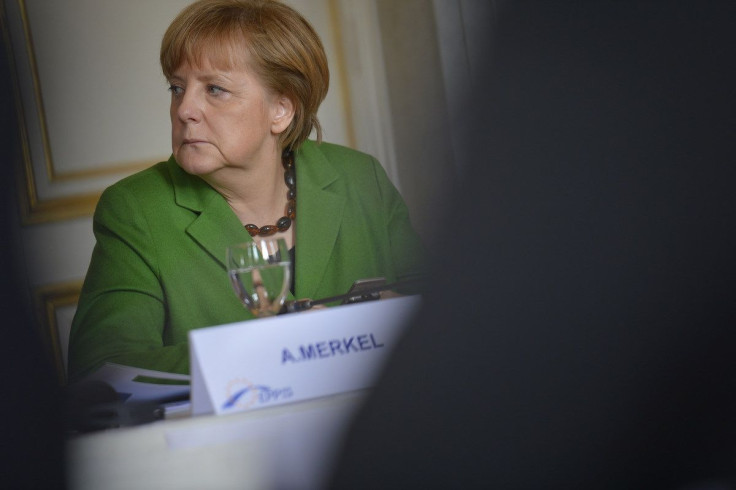Angela Merkel: How long can she stay as German chancellor?

After 18 years as chairwoman of the conservative Christian Democratic Union and 13 years as German chancellor, Angela Merkel surprised the public and her own party colleagues by announcing her intention to withdraw from politics.
It is somewhat typical for Merkel that she delivered this statement in an unemotional manner. Rather than ending her political career with a bang, she promised to ensure a smooth transition. Merkel announced that she will stand down as party leader in December 2018 but wants to remain chancellor until the next federal election in 2021. But can she last that long?
At the moment it appears unlikely that Merkel will remain in office for another three years. Many hold her responsible for the refugee crisis in 2015, the rise of the right-wing populist party Alternative für Deutschland (AfD), and the poor results for her Christian Democratic Union party (CDU) and its Bavarian sister party the Christian Social Union (CSU) in recent state elections. In her statement, Merkel admitted that her coalition government had put on a poor show, and that it will take more than cosmetic changes to improve the image of the grand coalition between the CDU and the Social Democratic Party (SPD).
Who has eyes on the top job?
SPD leader Andrea Nahles announced that she has no intention of stepping down but she, too, is under enormous pressure after her party’s disastrous results in the recent state elections in Bavaria and Hesse. If the current trend continues, the elections in Saxony, Thuringia and Brandenburg in 2019 will bring further defeats for Merkel’s CDU and Nahles’s SPD. There can be no doubt that the easiest thing for both women would be to quit now and leave it to others to sort out the mess. So, why don’t they quit?
Nahles says she has dreamt of becoming chancellor since she was 18. As SPD chairwoman, she is closer to that dream than ever, and she is too persistent to give up without a fight. Merkel was elected chancellor four times in a row, and has repeatedly topped the Forbes list of the most powerful women in the world. Right now, she stays in office not simply because she wants to cling to power (although this might have played a role in her decision to stand for re-election in 2018). Her decision for a step-by-step withdrawal was a clear signal to the AfD: I leave on my own terms and not because I am afraid of you.
Perhaps unsurprisingly, the AfD leadership views the matter differently. At a press conference a few hours after Merkel’s statement, AfD leaders Alexander Gauland and Alice Weidel declared that her withdrawal from politics is proof of their own successes. It’s certainly true that Merkel has been one of the favourite enemies of the AfD and other right-wing populists. The slogan “Merkel needs to go” (Merkel muss weg) became their rallying cry. Activists shouted it to disrupt her election rallies, and disseminated it on bumper stickers, posters and t-shirts. Now that Merkel is willing and ready to go, it becomes obvious how short-sighted this campaign was. One cannot help but think that the AfD leaders have not thought as far ahead as to work out what happens next. Like many other commentators, Weidel and Gauland declared that they are anxious to find out who will succeed Merkel.
Starting gun
Behind closed doors, leading members of the CDU (including Merkel) have been discussing Merkel’s succession for years. At this stage, three bids for the leadership seem to have good prospects of success. The first contender is Annegret Kramp-Karrenbauer, sometimes referred to as Merkel’s mini-me. Although Kramp-Karrenbauer is keen to emphasise that she does not agree with all of Merkel’s decisions, the two women share a pragmatic approach to politics, and Merkel has made no secret of the fact that she hopes she will be succeeded by Kramp-Karrenbauer.
However, many in the party want to see a clear break with the Merkel era and might support Jens Spahn or Friedrich Merz. Spahn is one of the most prominent critics of Merkel’s immigration policy and is likely to win the support of those who want a young and conservative chancellor. Merz, a free-market conservative, is an old rival of Merkel. He was the first to announce his intention to run for the leadership and quickly received strong support from business leaders. Currently, he works for the German branch of the global investment management company BlackRock. Unsurprisingly, there was no public response from Merkel.
In 2005, when Merkel was first trying to become chancellor, the CDU used the Rolling Stones’ hit “Angie” to celebrate and promote their first female leader at election rallies. Now, that it is time to say goodbye, we should remember, despite all the legitimate criticisms of her, that she was one of the few politicians who stood up to the AfD.
Katharina Karcher, Lecturer in German studies, University of Birmingham
This article is republished from The Conversation under a Creative Commons license. Read the original article.





















